Table of Contents
Who Are Brahma, Vishnu, and Shiva Meditating To: Understanding the Cosmic Meditation
In Hinduism, the Trimurti—Brahma, Vishnu, and Shiva—represents the three fundamental forces of the cosmos: creation, preservation, and destruction. These deities hold monumental significance in Hindu mythology and theology, each performing a unique and essential cosmic function. However, despite their immense power and influence over the universe, the question arises: Who are Brahma, Vishnu, and Shiva meditating to?
This seemingly simple question opens a window into the profound philosophical and spiritual dimensions of Hinduism. It touches on the concept of the divine, the nature of meditation, and the interconnection between the gods and the ultimate reality. In this blog, we’ll dive deep into the meditative practices of Brahma, Vishnu, and Shiva and uncover the answer to this intriguing question.
The Cosmic Roles of Brahma, Vishnu, and Shiva
Before we look into their meditation, let us understand the roles of these three gods in the cosmic order:
Brahma: The Creator
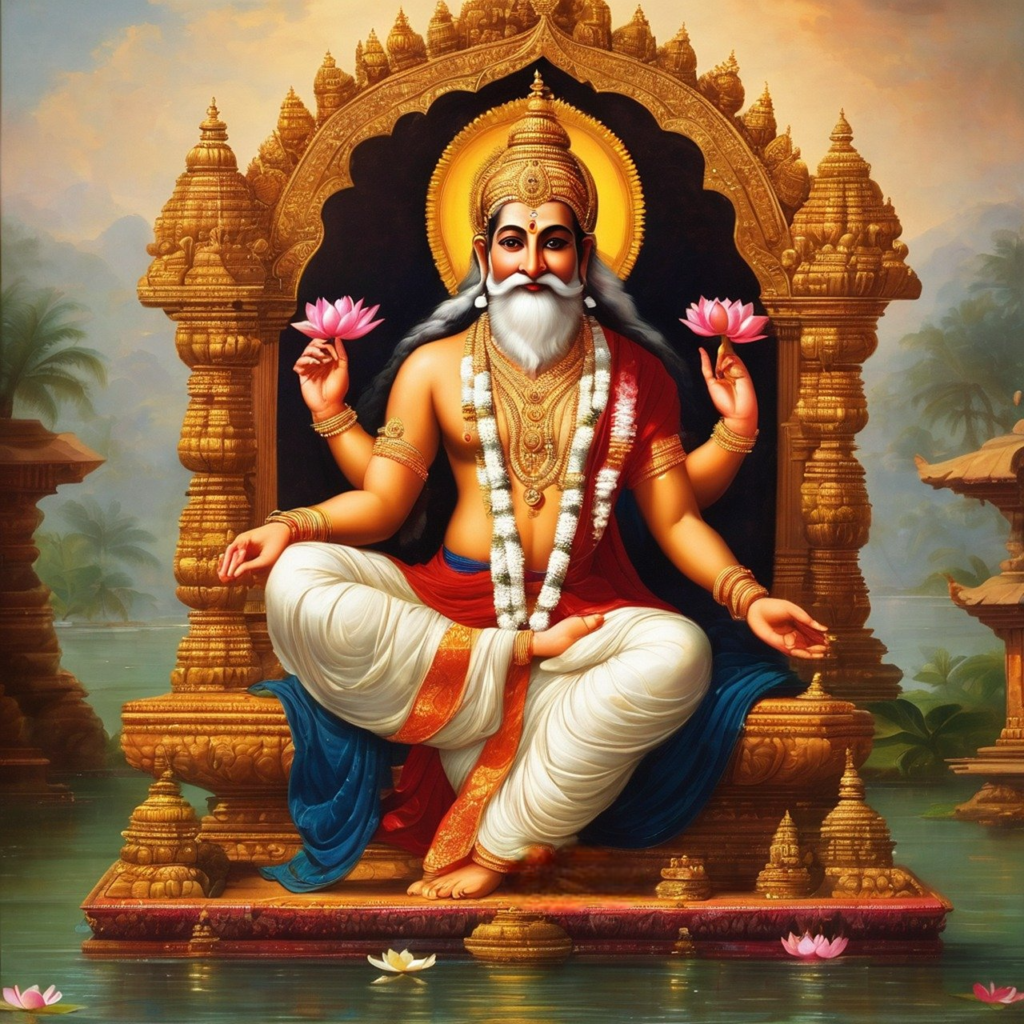
As the god responsible for bringing the universe into existence, Brahma is said to create all living beings, the material world, and the laws that govern it. He is depicted with four heads, symbolizing the four Vedas, the sacred scriptures of Hinduism, which provide the knowledge necessary for creation.
Vishnu: The Preserver.
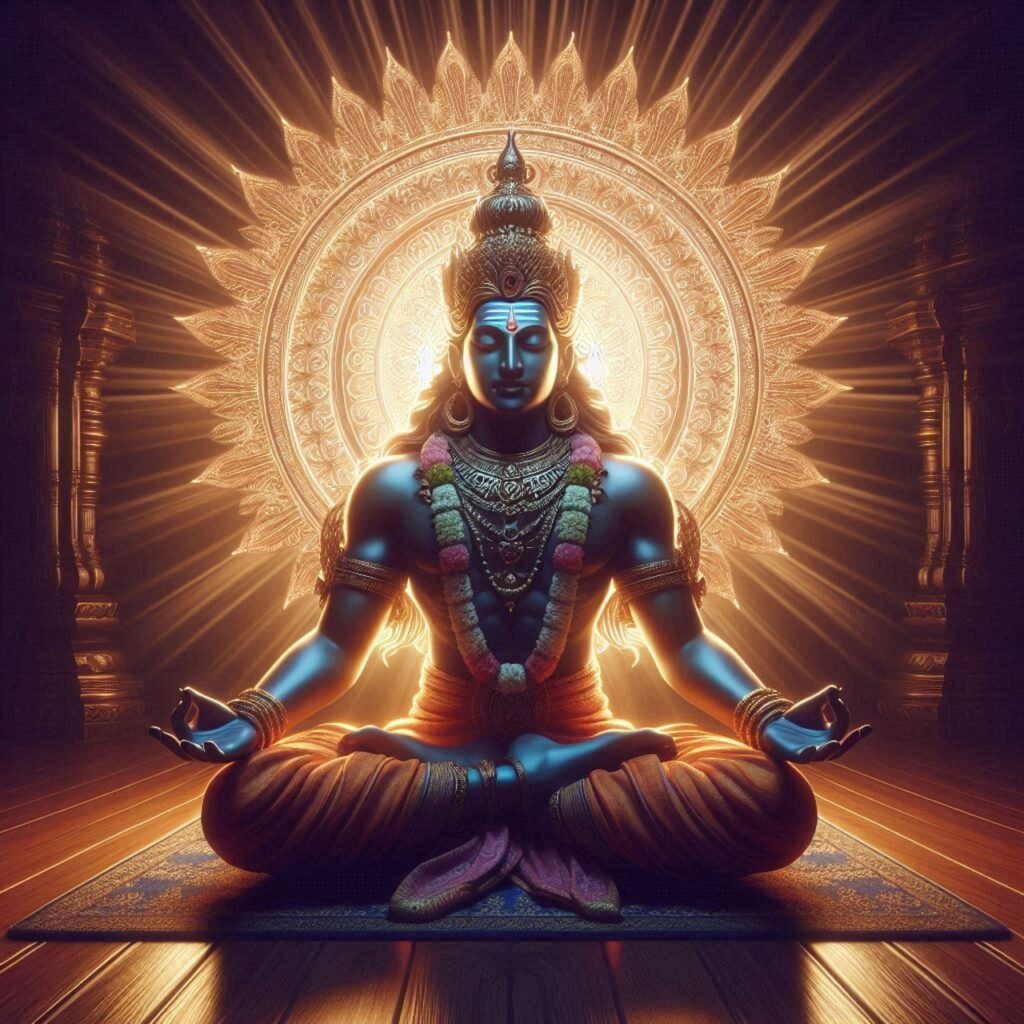
Vishnu’s role is to preserve the universe, ensuring its preservation and stability. He maintains cosmic order and righteousness (Dharma) through his divine incarnations, called avatars, such as Rama, Krishna, and others, who appear during times of great need to restore balance when evil forces threaten to disrupt the universe’s harmony.
Shiva is the Destroyer or Transformer.
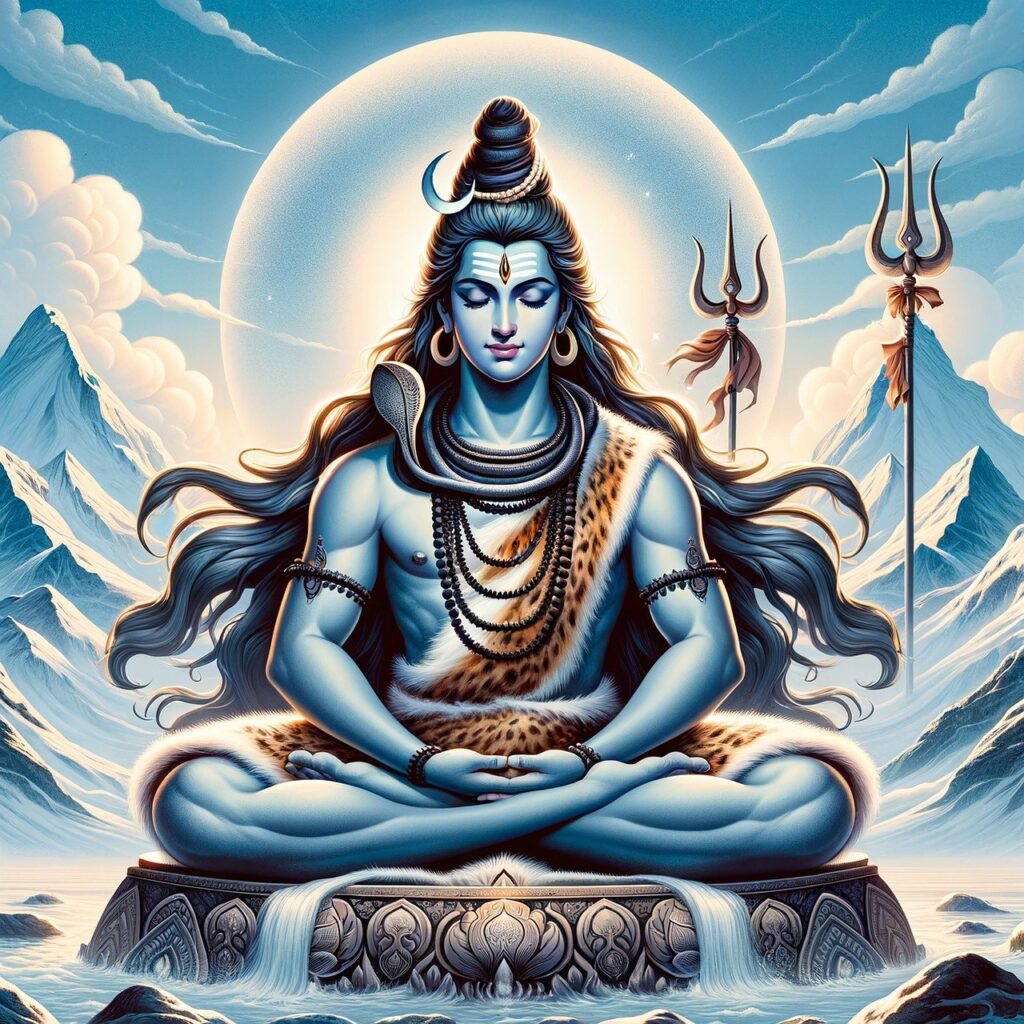
Shiva destroys and dissolves the universe at the end of each cycle and then allows renewal and rebirth. Different from destruction in a negative sense, transformation is the characteristic of Shiva, clearing the path for new creation to emerge.
While each of these gods has an individual role to play in the cosmic drama, they are unified by their association with the ultimate reality, Brahman, which is the formless, infinite consciousness that pervades all being. Knowing whom they meditate upon illuminates the relationship between the divine and the cosmos.
Shiva’s Meditation: An Intimate Bond with the Absolute
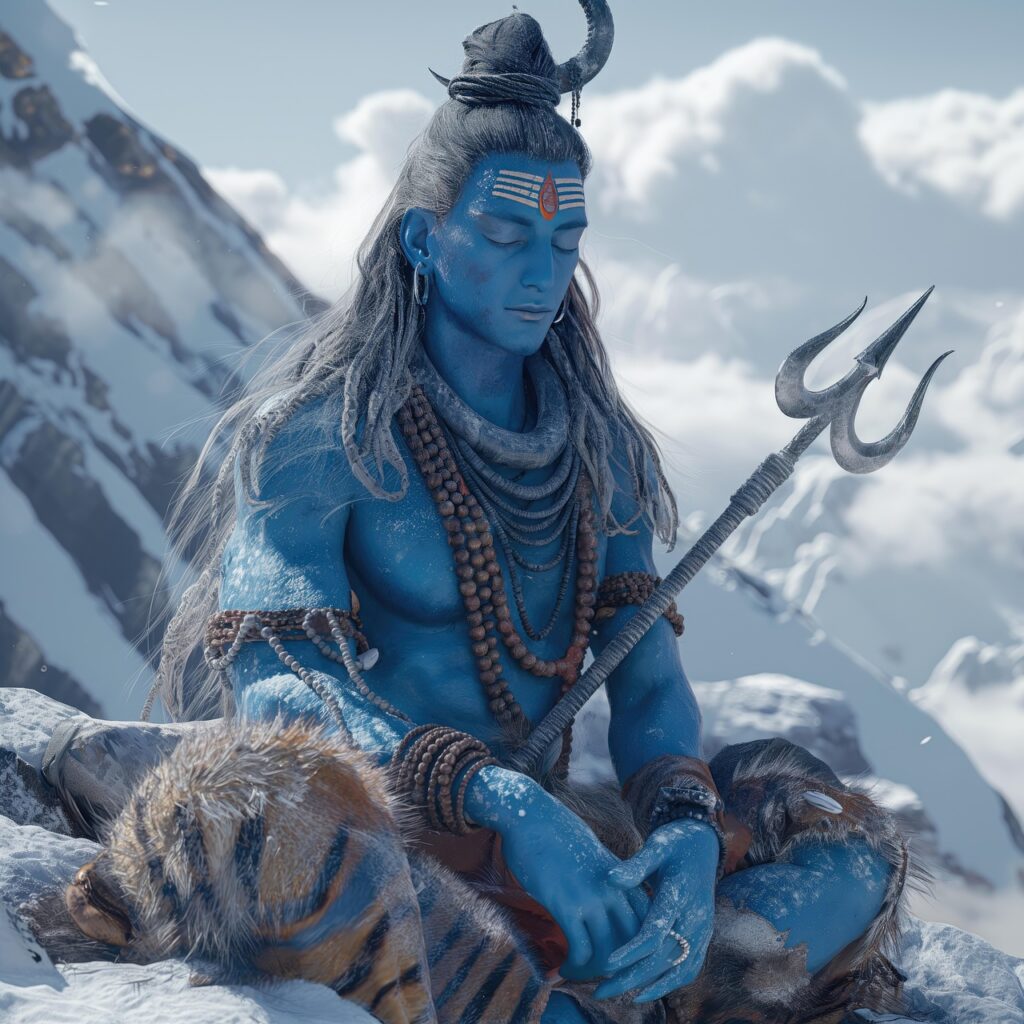
Shiva, the god of destruction and transformation, is often depicted in profound meditation. His meditative state is not just a form of personal contemplation but a cosmic act that ties him to the very fabric of existence.
Meditation on the Self and the Ultimate Reality (Brahman)
Shiva is often thought to be the embodiment of Brahman, the supreme, formless, and eternal reality. More than in having an external deity to focus on, meditation in most traditions of Shiva realizes his own true nature as the Supreme Being. His meditation symbolizes the journey to self-realization wherein he transcends all dualities and unites with absolute infinite consciousness.
In this aspect, Shiva’s meditation may be considered an absolute contemplation of Brahman. He is in meditation of one-ness between all entities as well as that of existence because he has identified that there should be birth, sustenance, and annihilation in cycles wherein the three modes are being interlinked together as governed by eternal truth.
Meditation by Shiva about Vishnu
Interestingly, some texts describe Shiva as meditating on Vishnu, even though both deities are considered to be equally powerful aspects of the same divine force. While Shiva is the destroyer, Vishnu is the preserver, and their roles, though seemingly oppositional, complement each other in the cosmic order.
This means that for the maintenance of the universe, as Vishnu symbolizes it, to be the same important process as its destruction and change. In other words, interdependence is very key to these creation, preservation, and destruction in showing how there should always be balance within the cosmos. As one force has its way in it, another does.
The meditation of Vishnu Contemplates the Harmony of the Universe

Vishnu is the preserver of the universe and is frequently depicted in a meditative posture, usually resting on the cosmic serpent Shesha or seated in deep concentration. His meditation symbolizes not only his role as the sustainer of the universe but also his connection to the supreme, formless source of all creation.
Meditating on Brahman
In Hindu philosophy, Vishnu is often described as meditating on Brahman, the ultimate source of the universe. Meditation in this context is not just an intellectual exercise but a spiritual practice aimed at understanding the deep, interconnected harmony of the universe.
Through his meditation, Vishnu aligns himself with the cosmic order, thinking about the balance between creation, preservation, and dissolution. He recognizes that Brahman is both the origin and the essence of everything—Vishnu himself is a manifestation of this supreme consciousness, and his meditation is a way of maintaining the cosmic rhythm that allows life to continue smoothly.
Meditating on the Preservation of Dharma
As preserver, Vishnu’s meditation also signifies his resolve to maintain Dharma, the universal law that preserves order and righteousness in the universe. When the cosmos becomes unstable, Vishnu takes birth on earth in his avatars (like Krishna or Rama) to revive Dharma and protect the world from evil forces. Thus, his meditation is also a form of reflective practice in which he makes sure that the divine order remains intact.
Brahma’s Meditation: Focus on Creation and Divine Wisdom
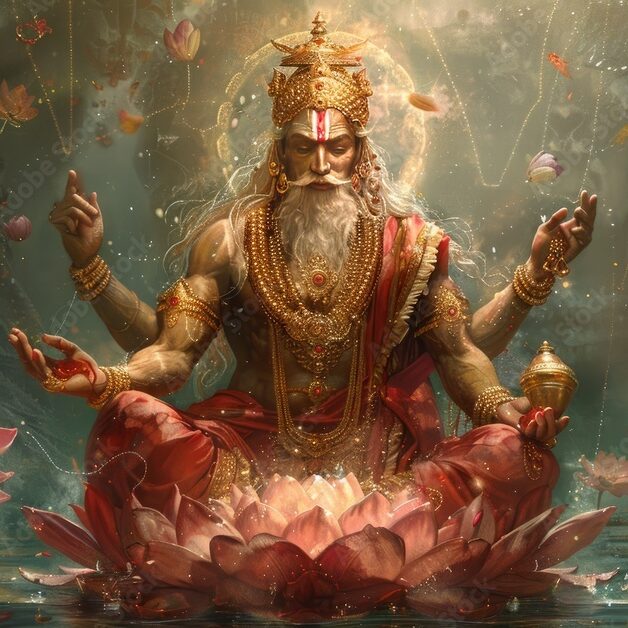
The creator god Brahma is depicted in deep meditation at the start of each new cosmic cycle. His meditation symbolizes the bringing into existence of the universe and is closely tied to the laws of creation.
Meditating on Vishnu
This founder is said to meditate on Vishnu, who is therefore “the supreme self of himself.” In Hindu mythology, Brahma emerged from a lotus that sprouted from Vishnu’s navel, implying that Brahma’s creation is directly related to the divine will of Vishnu.
In this regard, Brahma’s meditation is a means of reconnection with Vishnu, which establishes the fact that creation is not an isolated act but part of a larger, divine plan. Brahma’s meditative focus on Vishnu symbolizes the relationship between the creator and the preserver and highlights the fact that creation cannot exist without preservation.
Meditating on the Cosmic Blueprint
Brahma’s meditation also symbolizes his thought of the cosmic blueprint-the laws and principles governing the creation of the universe. His focus is on bringing order to the chaos and giving form to the unmanifest. In this sense, Brahma’s meditative practice is one of divine wisdom, a process of aligning with the universal principles that guide the development of life, time, and space.
The Ultimate Source: Brahman
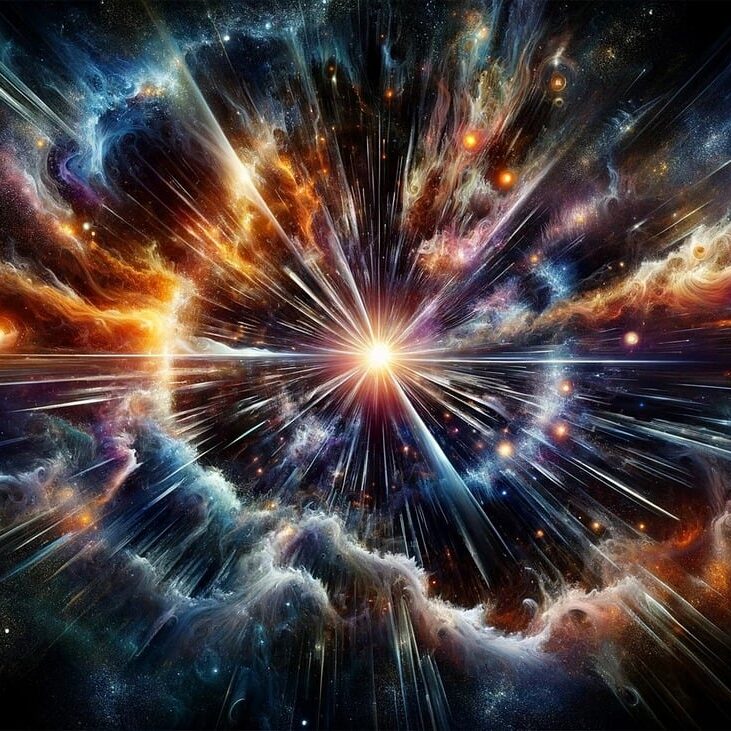
At the heart of these meditative practices lies the ultimate source: Brahman. Though Brahma, Vishnu, and Shiva each perform distinct roles in the cosmic cycle, they are ultimately manifestations of Brahman. Brahman is beyond form, beyond time, and beyond the limitations of the material world. It is the unchanging, infinite reality that underlies the entire universe.
These gods meditate for the simple reason that the universe is a single unit where all its parts, or different manifestations of the divine, work in a coordinated way to preserve the order and balance of existence. The seemingly distinct figures of Brahma, Vishnu, and Shiva represent aspects of the same ultimate reality.
Conclusion: Who are Brahma, Vishnu, and Shiva Meditating To?
More than a question of theology, the question is about the nature of the universe: Who is Brahma, Vishnu, and Shiva meditating on? Though individually assigned the tasks of creation, preservation, and destruction, ultimately all three gods are meditating on the same source: Brahman.
Shiva meditates on the formless essence of the universe, Vishnu contemplates balance in cosmic forces, and Brahma focuses on the wisdom required for creation. The practice of meditation by these three reflects the eternal truth, that the universe is a manifestation of the same divine consciousness, and their individual roles are integral parts of the same cosmic order.
It is in understanding who these gods meditate on that we gain deeper insight into the nature of the divine and our own place within the vast, interconnected universe. The meditative practices of Brahma, Vishnu, and Shiva remind us that everything is part of a greater whole—an eternal, unchanging reality that transcends form and connects all of existence.

Very Nice Blogs bro we need more pages to be created and we are waiting for your next blogs!!!!